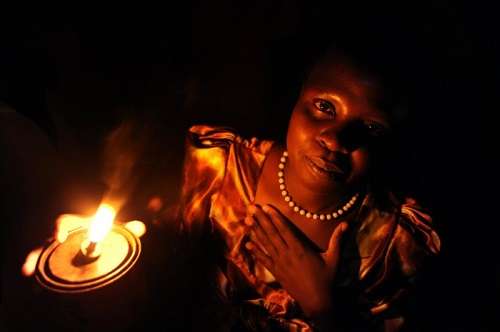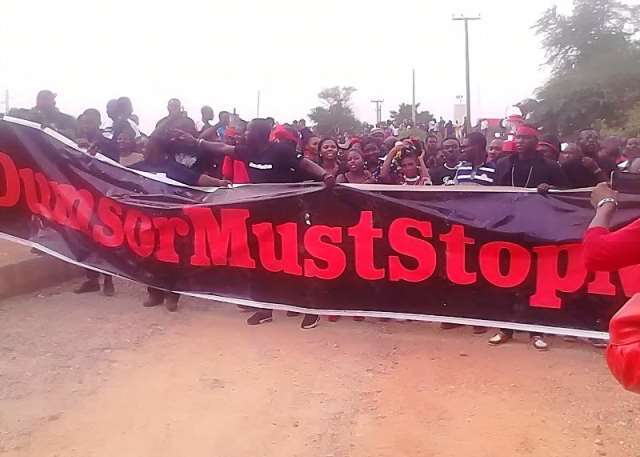Ghana has been grappling with a persistent issue known as ‘dumsor’ – which refers to the erratic power supply that has plagued the nation for years. The devastating effects of this electricity crisis have become increasingly apparent. The situation has led to calls for action from various quarters, including calls to demonstrate against ‘dumsor’ to draw the government’s attention to the issue.
The erratic power supply has had a detrimental effect on Ghana’s economy. Industries and businesses heavily rely on stable electricity to function efficiently, but with constant disruptions, productivity has suffered. Manufacturers face challenges in meeting production targets, leading to financial losses and potential job cuts.
“We have heard the call by the redoubtable Ms. Yvonne Nelson for round two of #dumsormuststop. Fair call even we (IMANI) have maintained our criticism of the government’s bad decisions for what often seems like a rudderless leadership, the latest dumsor episodes being the zenith. So, as you can see the (T-shirt), we are preparing and we will make the call and choose how we demonstrate and who we want to partner with at the right time.”
Franklin Cudjoe, President and CEO of IMANI Centre for Policy and Education
The impact of ‘dumsor’ extends beyond the economic sphere. Ghanaian citizens endure daily inconveniences due to power outages, including disrupted educational activities, limited access to healthcare, and compromised living conditions.
Schools struggle to provide a conducive learning environment, hospitals face difficulties in providing critical care, and households endure discomfort due to the lack of electricity for basic amenities. By organizing demonstrations, Ghanaians can voice their concerns about the deteriorating quality of life caused by ‘dumsor,’ prompting the government to prioritize resolving the issue.
Given the severity of the issue and the ongoing efforts to address it, demonstrating against ‘dumsor’ could serve as a powerful tool to draw attention to the problem. Demonstrations can highlight the urgency of the situation, the impact on the economy and daily life, and the need for effective solutions. They can also put pressure on the government and other stakeholders to take more decisive and sustainable actions to resolve the crisis.
The ongoing power issues have forced citizens to sleep outside for some relief from the heat. Those without generators are using their car ACs for some cool air, especially for their children who can’t bear the extreme heat.
Others with generators are facing high costs because fuel prices keep going up almost every other day. The same goes for those using their cars to cool down, burning fuel for hours, and waiting for a fix for the respective localized faults.
Political Accountability

Hon. Samuel Okudzeto Ablakwa, the Member of Parliament for North Tongu called on President Nana Akufo-Addo to hold a direct engagement with the Ghanaian people through a press conference and a people’s assembly to enable him to come to terms with the current reality instead of listening to “his deceptive, inept and arrogant appointees who insult us by asking that we prepare our own DUMSOR timetable.”
Demonstrations serve as a powerful tool to hold the government accountable for its actions or lack thereof. By mobilizing the masses, Ghanaians can express their dissatisfaction with the government’s handling of the ‘dumsor’ crisis, demanding transparency and concrete measures to address the issue. Demonstrations also shine a spotlight on the urgency of the situation, putting pressure on elected officials to respond promptly and effectively.
“President Akufo-Addo is arguably the only president in the world who has not held an open media engagement to take unfiltered questions from journalists in over 4 years. I am really surprised the Ghanaian media has accepted this unhealthy development as a new normal. No Ghanaian president has been allowed to get away with what Akufo-Addo is getting away with — absolutely despicable!”
Hon. Samuel Okudzeto Ablakwa, the Member of Parliament for North Tongu
The devastating effects of the erratic power supply, commonly known as ‘dumsor,’ have left Ghanaians with no choice but to take action. Demonstrations provide a platform for citizens to unite, voice their concerns, and demand accountability from the government.
The economic, social, and environmental repercussions of ‘dumsor’ are far-reaching and require immediate attention. By organizing demonstrations, Ghanaians can draw government’s attention to the pressing need for a long-term solution, ensuring a brighter and more stable future for the nation.
READ ALSO: GNAPF Calls for $100 Million Investment to Revitalize Ghana’s Poultry Sector




















